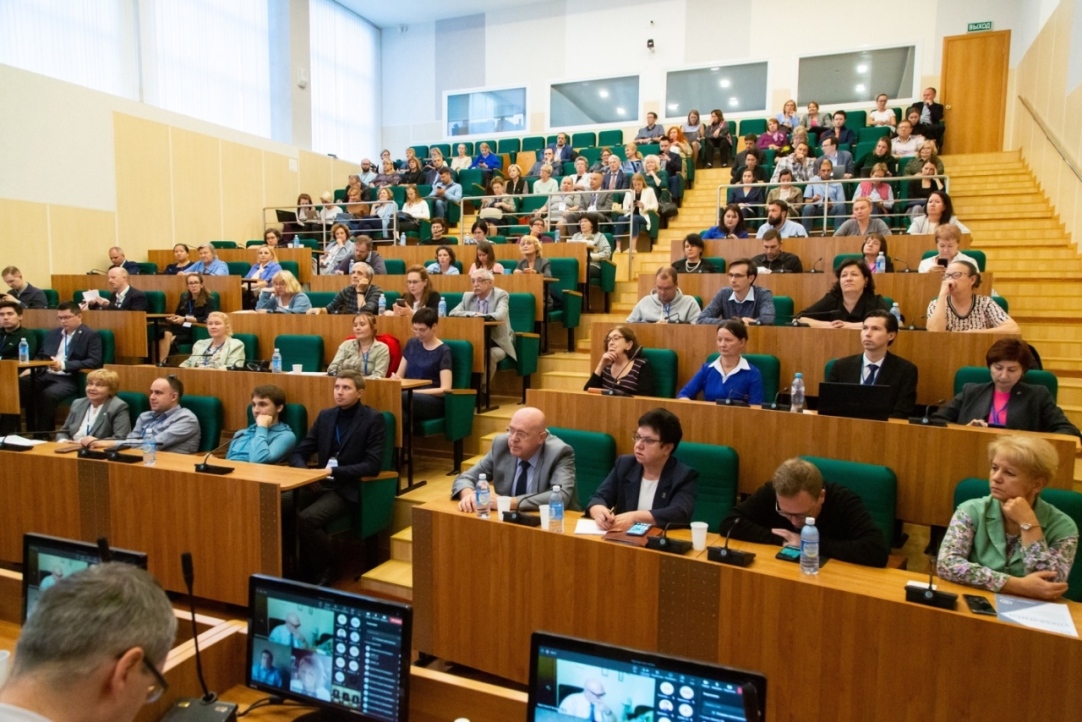V Russian Economic Congress: Human Capital Multidisciplinary Research Center Gives a General Assessment of the Country's Cultural Heritage Potential
From September 11 to 15, Yekaterinburg hosted the Fifth Economic Congress organized by the New Economic Association. More than 1,500 scientists from 75 universities and 37 institutes of the Russian Academy of Sciences took part in REC-2023, which is more than 180 organizations in total.

At the special session Culture and Creative Industries, Pavel Shulgin, head of the Center for Integrated Regional Programs of Socio-Cultural Development of the Institute of Social Policy, and Olga Shtele, a leading expert of the Center, made a report Potential of Russian Cultural Heritage and Tasks of Improving its Use (RU). The report was prepared on the basis of the work carried out within the framework of a grant provided by the Ministry of Science and Higher Education of the Russian Federation (Grant agreement No.: 075-15-2022-325).
Experts noted that modern realities allow us to set the following strategic task: culture and cultural heritage is a special economic resource, it can and should become the basis of economic specialization for a number of cities and territories, become one of the new factors in the development of the local socio–economic complex. This path has been passed by many economically developed countries. In Russia, cultural heritage in the form of a city-forming function and a driver for the development of the regional economy is just beginning to develop.
During the presentation, scientists gave a general assessment of the potential of the country's cultural heritage and presented the zoning of the territory of the Russian Federation based on the typology of Russian regions according to the potential of cultural heritage. They also considered the main directions of improving the use of heritage, including cultural framework of the country as a whole, as well as the cultural framework of individual regions, which should ensure the preservation and use of diverse local heritage. The scientists also stressed the importance of developing a network of museum reserves as the basis of the cultural framework and as the most effective form of using heritage. Thus, by 2035, the number of such museums is expected to increase to 400-500 units, and annual attendance should grow to 300 million by 2035.
REC-2023 is a large and multi-format intellectual platform for discussing the history of economic thought, economic theory, issues of the Russian economy, world and regional economy. The congress does not have a single topic, it traditionally assumes a broad discussion front. The scientific discussion was focused on current socio-economic problems. This year, the Ural State University of Economics became the base platform of the Russian Economic Congress.

.jpg)